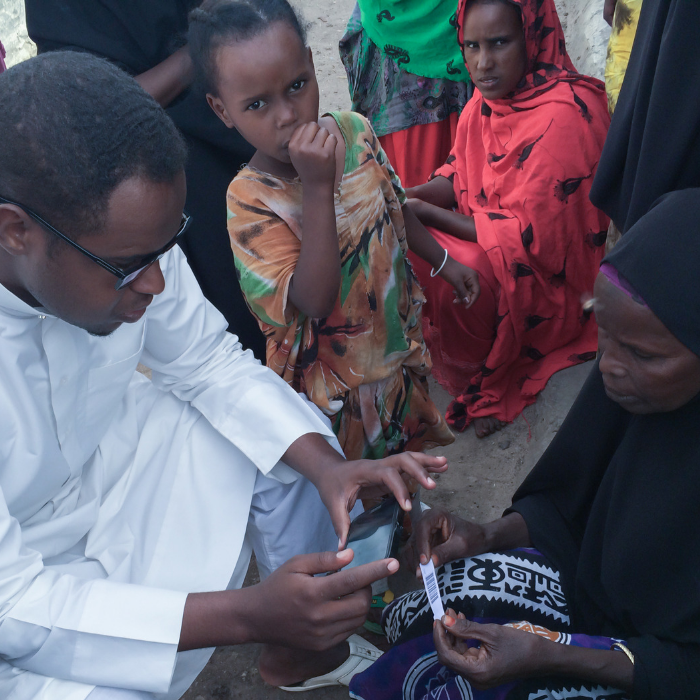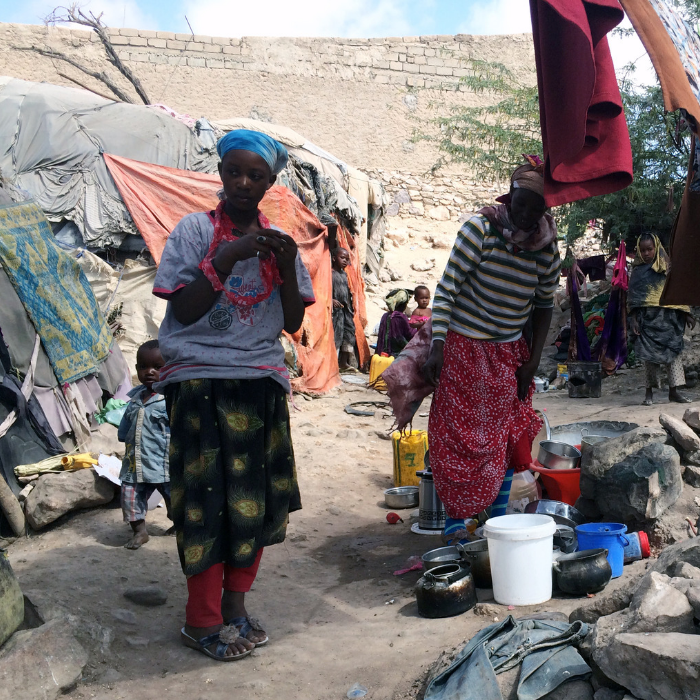The combination of armed conflict and severe and recurrent drought and floods have forced huge numbers of Somalis to leave their homes. Mogadishu, the capital city, hosts the country’s largest population of IDPs living in protracted displacement, often in informal settlements, and Hargeisa, the capital of the Somaliland region, hosts many more. There was, however, little reliable and up-to-date information on displacement patterns and IDPs’ living conditions and aspirations on which to base policies and programmes to support them in pursuing durable solutions.
JIPS’ involvement in Somalia began in 2013 when various UN, NGO and government partners asked us to support urban profiling exercises in Mogadishu and Hargeisa. The aim was to provide disaggregated estimates of the number of IDPs living in informal settlements, understand their migration histories and conduct a comparative analysis of the socioeconomic and living conditions, access to basic services and protection concerns of different populations living in the settlements.
Profiling for durable solutions in Mogadishu (2013 – 2016)
In Mogadishu, the profiling process focused on the hundreds of informal settlements in which IDPs are known to live. The purpose was to update the overall figure of persons living in these settlements, analyse their displacement history and based on IASC Framework on Durable Solutions for IDPs examine the families’ skills, capacities, specific needs and coping mechanisms that affect their decision-making for the future, with the aim of establishing a mutually agreed evidence base to inform a comprehensive strategy and related programming.
The profiling exercise had significant impact: the results later contributed to the inclusion of IDPs in Somalia’s National Development Plan. They furthermore provided the much-needed baseline for the more recent 5-year Durable Solutions Strategy of the Baanadir Regional Administration (BRA).
Our support spanned all phases of the profiling process, from establishing the scope and objectives to designing the methodologies and tools to data collection, analysis and validation, and development of the final reports. Building local capacity for profiling was also important, to ensure that local partners were in a position to carry out similar exercises in other parts of the country.
In Mogadishu, we facilitated a multi-stakeholder workshop to launch the exercise in August 2014, and a profiling working group was set up to lead the undertaking. The group was hosted by the Somalia protection cluster and included central and Banadir regional authorities and a broad range of UN agencies and local and international NGOs.
Following a mapping exercise that built on existing data complemented by primary data collection to fill gaps, we supported the development of a methodology that took into consideration the various ongoing population movements in Mogadishu and the challenging security situation. An enumeration of settlement populations was carried out in September 2015 and was followed by a sample-based household survey and qualitative data collection.
During our second mission to support the profiling process in Somalia in March 2015 we also worked with the newly established Solutions Alliance Somalia Group, taking part in a technical workshop to develop a framework for monitoring progress towards durable solutions as a collective effort with a focus on sustainable returns.
The Somali Government launched the final profiling report in May 2016.

The profiling exercises took place in two significantly distinct urban contexts, but in both a collaborative durable solutions analysis had an important impact:
The sense of local ownership of the exercise played a significant role in these achievements, and in the setting up of the Somalia IDP Durable Solutions Initiative, a UN-led project to leverage political willingness and humanitarian and development support to develop a comprehensive durable solutions strategy.
The Mogadishu exercise also confirmed the importance of designing a flexible methodology able to adapt to emerging challenges, and of adopting an area-based approach that establishes a better understanding of the specific characteristics of different population groups together with the broader urban system. It also served as a reminder of the often-overlooked importance of involving IDPs themselves in a profiling process for durable solutions to ensure that the findings reflect their priorities.
Profiling for durable solutions in Hargeisa (2013-2016)!
In Hargeisa, the profiling aimed to inform a new way of responding to the displacement situation in the city with a pressing need to support durable solutions in collaboration with the authorities, NGOs and UN partners.
The exercise focused on the capital of the Somaliland region, where according to estimates thousands of IDPs had arrived over the past years, sharing the informal settlements with labour migrants, refugee returnees, asylum seekers and local urban poor. In addition, the project had a specific focus on IDPs from South Central Somalia, a “hidden population” who often lived outside of the known settlement areas and was therefore suspected to be particularly vulnerable due to limited access to assistance and protection.
The Hargeisa exercise started by a stakeholder workshop facilitated by JIPS in September 2014. The workshop established a collaborative process by forming a profiling taskforce, led by the Somaliland Government through the Ministry of Resettlement, Rehabilitation and Reconstruction and the Hargeisa Protection Cluster. The taskforce was made up of representatives from three ministries and a broad range of humanitarian and development stakeholders in the form of UN agencies and local and international NGOs.
As part of the process of setting objectives for the exercise, we accompanied the profiling partners on field visits to settlements where IDPs had established themselves and other areas where they were living outside recognised settlements. We supported a mapping exercise that was completed in January 2015 and informed the design of a survey methodology.
Enumeration and a comparative household survey targeting IDPs, returnees, refugees and asylum seekers, migrants and host community members was completed in June 2015. We supported a quality assurance check on the data collected remotely, delivered on-site training on data cleaning and analysis to develop their skills in handling the data, as well as supported more complex analysis and formulation of key finding in the profiling report.
The final profiling report was published in January 2016.

The profiling exercises took place in two significantly distinct urban contexts, but in both a collaborative durable solutions analysis had an important impact. The Hargeisa exercise made a difference in that it:
Khadra Elmi, profiling advisor, stressed the importance of the collaborative nature of profiling: “This exercise makes me realise the importance of genuine and invested high-level buy-in from all stakeholders, in particular local authorities, in order for the data to have impact.”
The exercise also showed the extent to which community information campaigns and participation can help to overcome the challenges associated with reaching additional vulnerable populations such as refugees and asylum seekers.